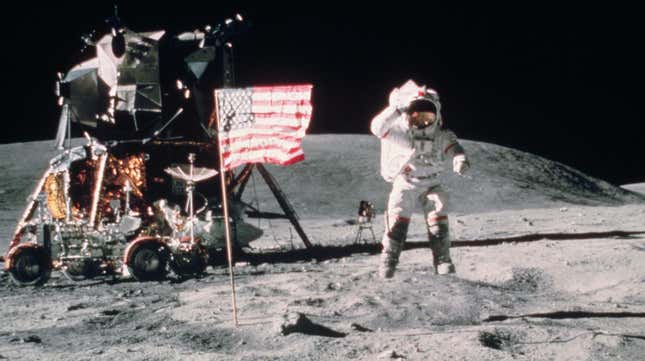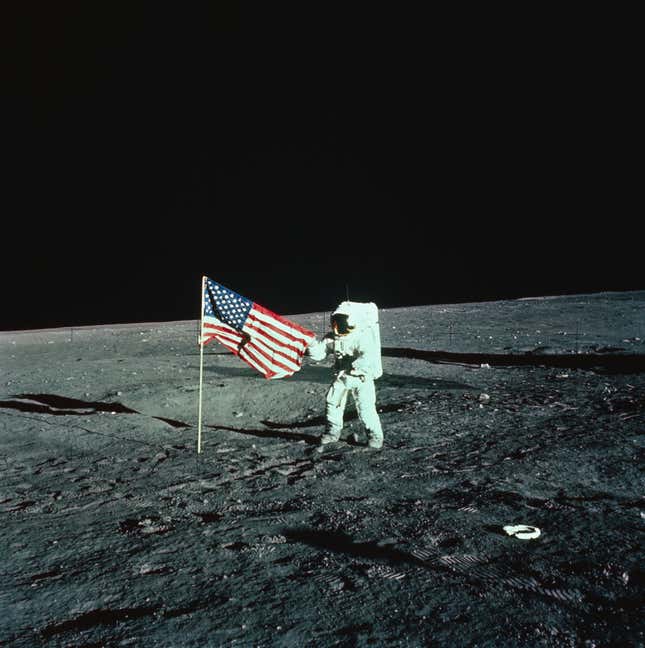
As hard as it is to believe, modern conspiracy theories that claim the Apollo lunar landings were a hoax don’t hold a candle to the outrageous things that the American public once believed about the moon. Long before the age of social media, and over a century before the 1960's counterculture wave in the U.S., the moon was the center of the hoax universe. And it mostly comes down to a beef that editor Richard Adams Locke had with religious scholars and other contemporary astronomers like Thomas Dick, according to Aeon.
If you’re into the history of humans on the moon, or if you know someone who believes the lunar landings were staged, go watch this BBC Reel, which explains how humans have entertained countless conspiracies that more or less trace back to a big misunderstanding and greedy newspapers trying to make money:
The BBC video gives a fascinating look into the history of the “Great Moon Hoax”, which predates the belief that the U.S. faked the moon landings. It’s easy to blame FaceBook for the prevalence of conspiracy theories today, but the penny press and tabloids served a similar purpose for centuries, per Aeon:
While the social media age may allow misinformation to spread like a highly contagious virus, ‘fake news’ is, of course, as old as the news itself. And, as The Great Moon Hoax chronicles, the Moon proved fertile ground for misinformation long before the persistent conspiracy theory that the Apollo landings were faked. In this short, the Australian journalist Kirsty B Carter interviews the US writer Matthew Goodman who explains how a series of stories, originally intended as satire and published in 1835 in the New York paper The Sun, convinced millions that the Moon was teeming with life – including, infamously, a race of bat-people.
Back in the early 1800s, people fell for fanciful accounts of what exactly the moon was, and of who (or what) was living there. So-called astronomers, scholars and religious scientists at the time claimed the moon was home to unicorns, beavers that walked upright and Man Bats (as opposed to Batmans.)
These bat-human hybrids were reportedly observed by scientists on the lunar surface by using cutting-edge telescopes. They were basically like us, but shorter — around 4 feet tall — and lived among temples on the moon. They had their own language, culture and art. They were even wont to have sex in public. Right in the open, in broad daylight! Because why the hell not?
It turns out these accounts were “fake news,” and a pointed dig at religious astronomers who claimed to have seen similar things on the moon. The New York Sun’s editor, Richard Adams Locke, wrote a satirical series of articles that people were primed to believe, and then falsely claimed the discoveries were made by astronomer Sir John Herschel. But by doing so, poor Locke ended up convincing even more people and the rest is history. In any case, take a loved one who believes in philanthropic billionaires (yeah, right, Bruce Wayne) and in fake lunar landings and show them the BBC video.

